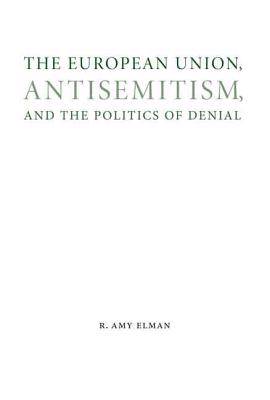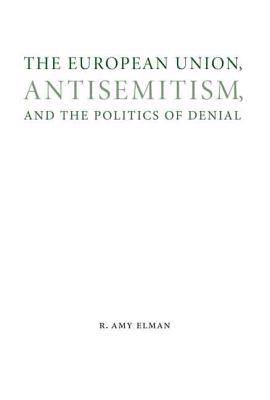
- Retrait gratuit dans votre magasin Club
- 7.000.000 titres dans notre catalogue
- Payer en toute sécurité
- Toujours un magasin près de chez vous
- Retrait gratuit dans votre magasin Club
- 7.000.000 titres dans notre catalogue
- Payer en toute sécurité
- Toujours un magasin près de chez vous
Description
Copublished with the Vidal Sassoon International Center for the Study of Antisemitism, this study asks if the European Union (EU) has the capacity or the will to counter antisemitism. The desire to counter antisemitism was a significant impetus toward the formation of the EU in the twentieth century and now prejudice against Jews threatens to subvert that goal in the twenty-first. The European Union, Antisemitism, and the Politics of Denial offers an overview of the circumstances that obliged European political institutions to take action against antisemitism and considers the effectiveness of these interventions by considering two seemingly dissimilar EU states, Austria and Sweden.
This examination of the European Union's strategy for countering antisemitism discloses escalating prejudice within the EU in the aftermath of 9/11. R. Amy Elman contends that Europe's political actors have responded to the challenge and provocation of antisemitism with only sporadic rhetoric and inconsistent commitment; this halfhearted strategy for countering anti-Semitism exacerbates skepticism toward EU institutions and their commitment to equality and justice. This exposition of the insipid character of the EU's response simultaneously suggests alternatives that might mitigate the subtle and potentially devastating creep of antisemitism in Europe.
The author offers a new approach insofar as scholarly considerations of the EU's attempts to combat racism rarely focus on antisemitism, while scholarship on antisemitism rarely considers the political context of the European Union.
Spécifications
Parties prenantes
- Auteur(s) :
- Editeur:
Contenu
- Nombre de pages :
- 176
- Langue:
- Anglais
- Collection :
Caractéristiques
- EAN:
- 9780803255418
- Date de parution :
- 01-02-15
- Format:
- Livre relié
- Format numérique:
- Genaaid
- Dimensions :
- 164 mm x 231 mm
- Poids :
- 412 g







